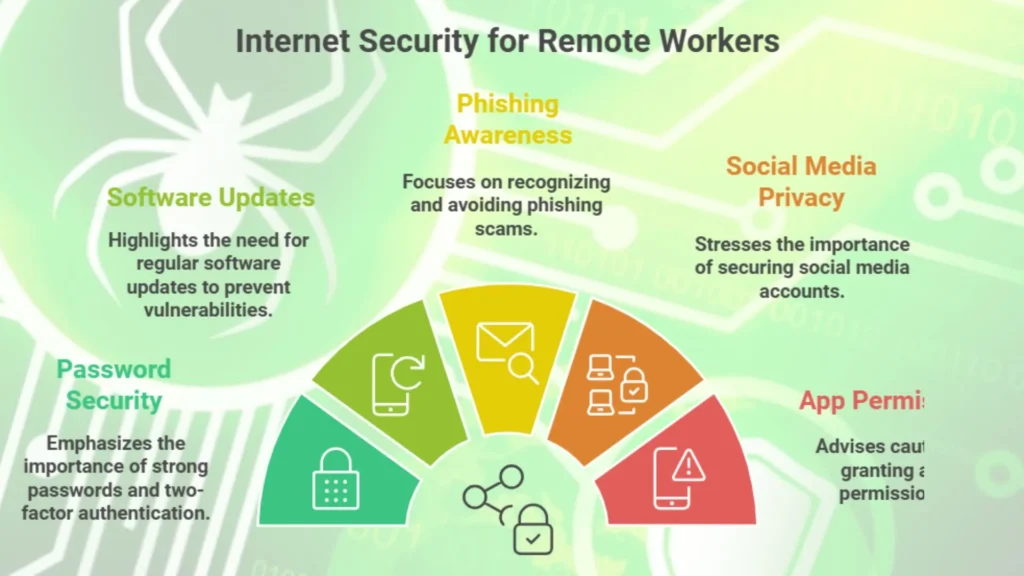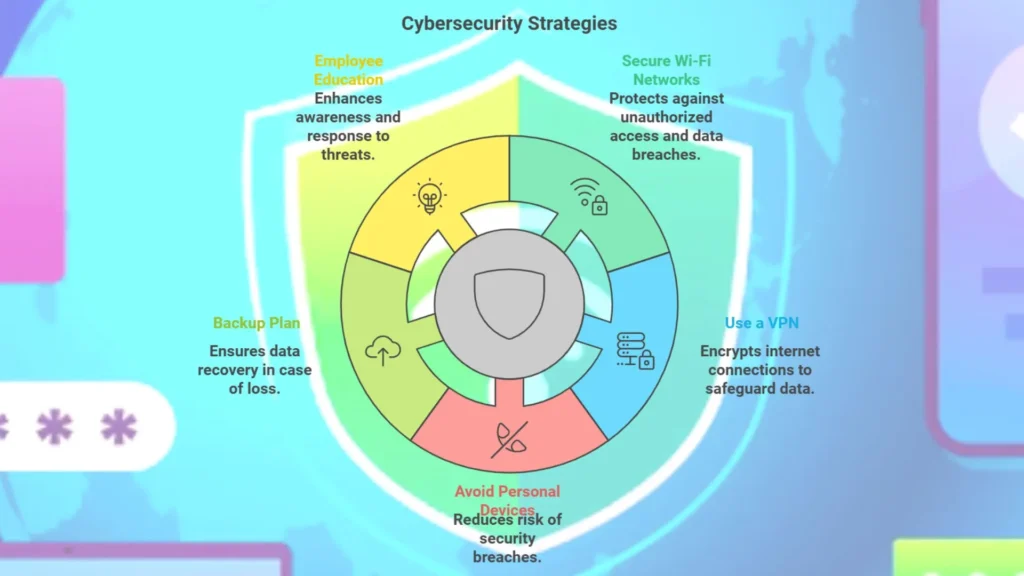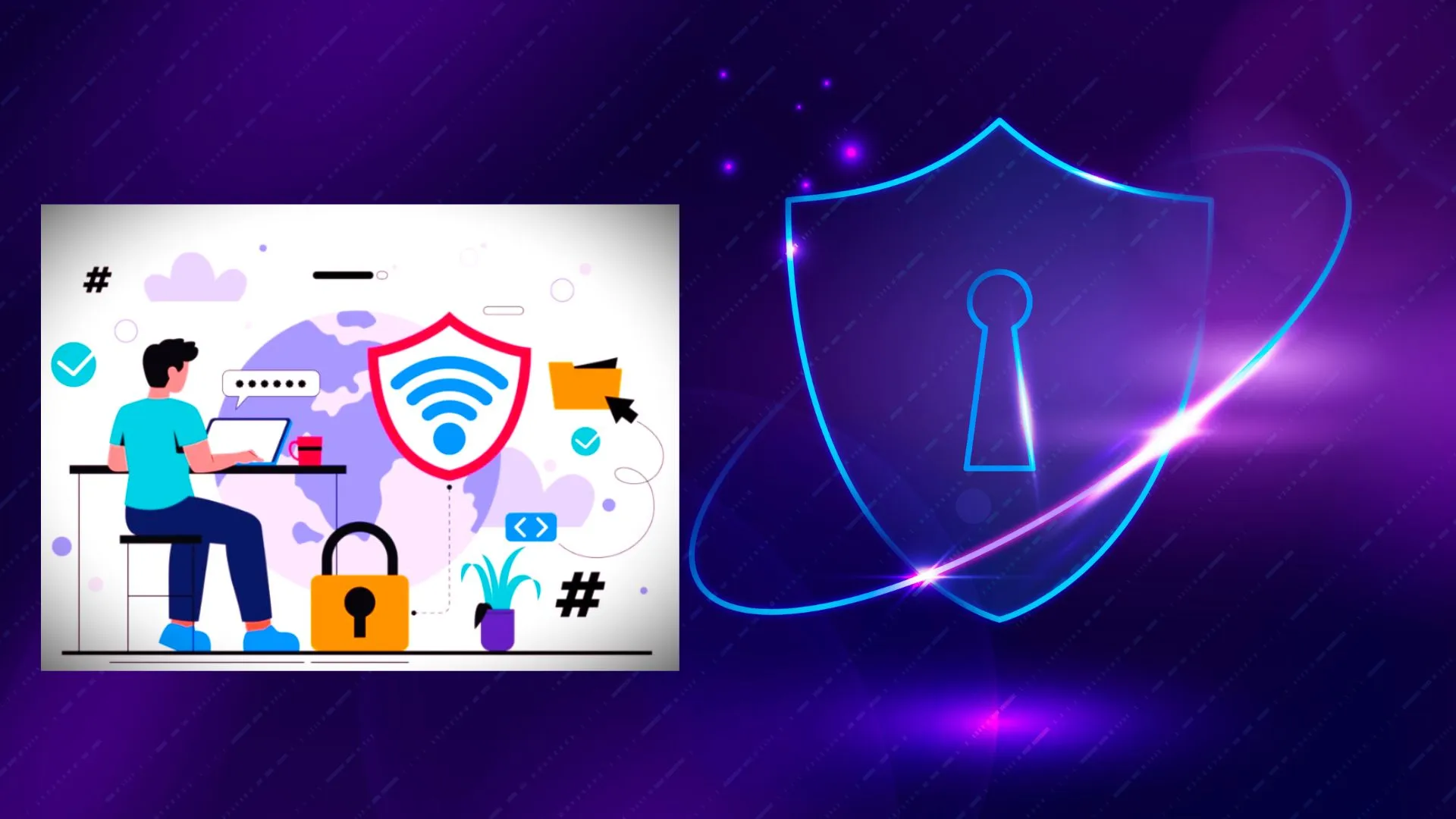The rise of remote work has brought job flexibility and convenience to many people, but it has also introduced many cybersecurity risks. With more people working from home or public spaces, it has become very important to remain secure on internet. Cyber threats such as ransomware, phishing and identity theft have become more dominant.
In this article, we shall provide the best cybersecurity tips for remote workers and safety practices that will help you to protect your personal and business data from online threats.
Internet security tips for remote workers
Following are the important tips for remote workers to stay protected on internet
1. Make Strong Passwords and Use Two Factor Authentication
Weak passwords are one of the most common ways hackers gain access to sensitive data. Strengthen your passwords and use two factor authentication (2FA) wherever possible. 2FA will protect your accounts, even if someone gets your password.
– Password Managers: Use a password manager to generate and store complex, unique passwords for each account.
2. Keep Software Updated
Outdated software can have weakness that cybercriminals exploit. Always update your systems to the latest versions.
– Automatic Updates: Set your software, browsers, and operating systems to update automatically. This ensures that you are always protected.
– Antivirus Software: Regularly update your antivirus and firewall software to block potential threats.
3. Beware of Phishing Scams
Phishing remains a top cyber threat. Hackers generally impersonate as trusted sources, such as colleagues or institutions. They do this to trick you into providing sensitive information.
– Identify Red Flags: Be aware of unexpected emails, especially those who ask your personal or financial information. Look for spelling mistakes, unfamiliar URLs and suspicious attachments.
– Verify the Sender: If something looks suspicious, verify the sender’s identity by contacting them directly, rather than clicking on the provided link.
4. Lock Down Social Media Accounts
Hackers can get access to your online identity through your social media accounts. Regularly review your privacy settings. Don’t overshare your personal information like your location or activities.
– Secure Accounts: Enable two factor authentication and strong passwords on all social media platforms.
– Regular Checks: Log in periodically to check for any suspicious activity or unauthorized logins.
5. Manage App Permissions
Many apps collect more data than they need. Always review the permissions apps request.
– Limit Permissions: Be careful about apps asking for access to your location, contacts or camera. Only provide access to apps you trust.
– Research Developers: Check app reviews and research the developers before downloading an app, especially if it is free and full of ads.

6. Secure Your Wi-Fi Networks
One of the most important steps for remote workers is to secure their Wi-Fi network. A poorly protected network can open doors for cybercriminals.
– Change Default Router Passwords: Many routers come with default passwords that are easy to guess. Update your router’s password to something complex and unique.
– Update Router Firmware: Install any available firmware updates for your router to patch security vulnerabilities.
– Use WPA3 Encryption: Ensure that your Wi-Fi encryption is set to WPA3, the most secure option available. WPA2 is acceptable if WPA3 is not available.
7. Use a VPN (Virtual Private Network)
A VPN encrypts your internet connection, which makes it difficult for hackers to intercept your data. This is especially important if you use public Wi-Fi, which can be a hotspot for cyber attacks.
– Encrypt Data: By using a VPN, all your internet traffic is encrypted, which protects sensitive company and personal data.
– Disable for Performance: VPNs may slow down your internet connection. Disable the VPN temporarily during high bandwidth activities like video conferencing, but ensure to re-enable it afterwards.
8. Avoid Using Personal Devices for Work
Using personal devices for work tasks can expose company data to security risks, as personal devices may lack strong security measures.
– Work Supplied Devices: Whenever possible, use devices provided by your employer, which has the necessary security protocols in place.
– Separate Personal and Work: Keep personal activities on personal devices and work tasks on work devices to minimize the risk of security breaches.
9. Have a Backup Plan
Data loss doesn’t always come from cyber attacks; it can also occur due to hardware failure, accidental deletion or physical damage.
– Cloud Backup: Use cloud storage to back up important files regularly. Cloud backups can be a lifesaver during ransomware attacks, as they provide a way to restore data without paying a ransom.
– Scheduled Backups: Set your systems to automatically back up important files at regular intervals.
10. Educate Employees on Cybersecurity Best Practices
The best line of defense against cyber threats is a well informed team.
– Security Training: Educate employees to identify threats, maintain secure practices, and quick respond to potential cyber incidents.
– Clear Policies: Make sure that employees follow company policies, such as to avoid public Wi-Fi for work tasks or to use company provided security tools.

Conclusion
The internet security or cybersecurity has became more important in our professional and personal life due to the shift towards remote work. For protecting your data, cybersecurity awareness is very important. Take proactive measures, such as secure Wi-Fi networks, use VPNs, update software and educate employees; thus you can significantly reduce the risk of cyberattacks.
Implement the right strategies and stay alert to ensure that your sensitive information remains safe from hackers and malicious elements on internet.

